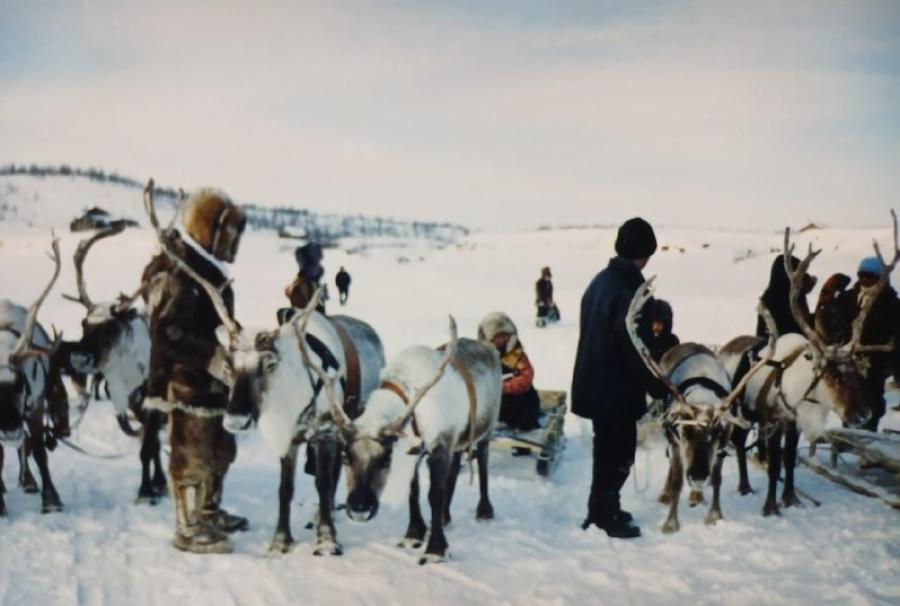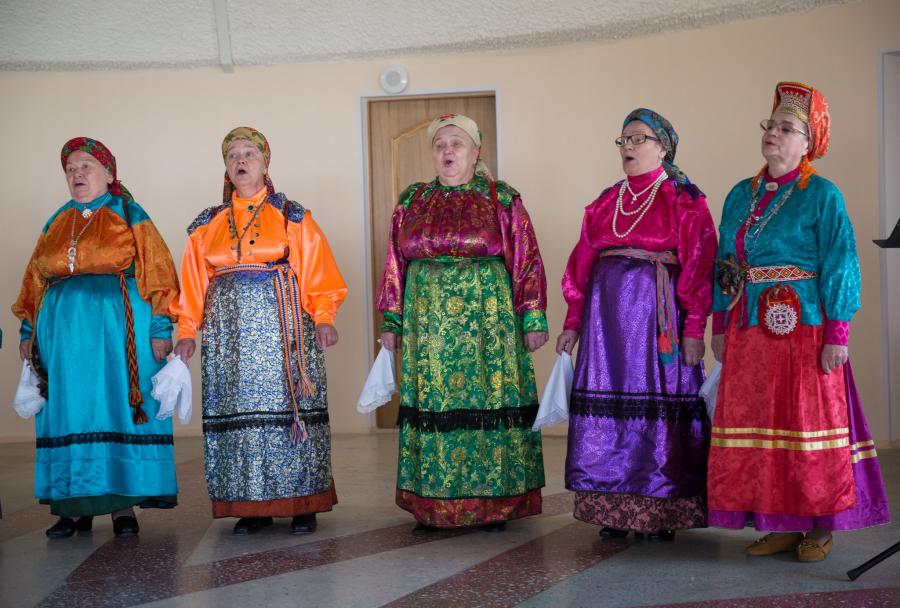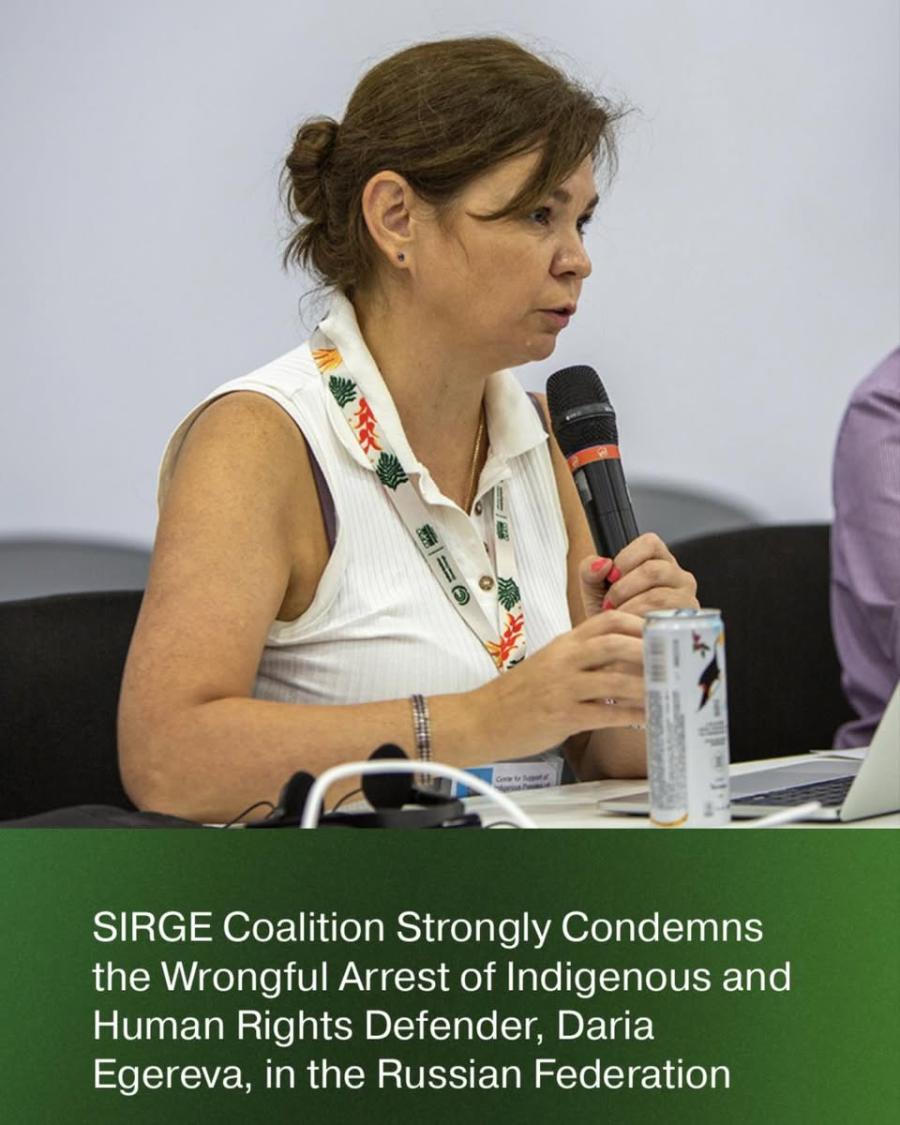They say the moose in the forests have no hair and no blood. Parents say the children suffer from leukemia and are allergic to apples and jam; their skin breaks out in rashes, and they have trouble breathing. In the nature museum is a stuffed calf that was born here not long ago, a calf with two heads not unlike the two-headed eagle that is the historic symbol of the Russian empire. The world's fourth longest river flows here, but it contains no fish.
"Don't go out after dark," people warn. "Bands of youths roam the area. A murder was committed last year right under that apartment building," a man says, pointing to the space between the ground and the first floor. Such is the design of all major buildings to prevent the permafrost underneath from melting.
The place is Yakutsk, a city of some 250,000 people in Yakutia, Siberia, georgraphically the largest of the per-1990 Soviet Union's 16 "autonomous" republics. About 170,000 people - two-thirds of the city - are Russians and Ukrainians. Most of the rest are Yakuts (Sakha in their language, meaning the people). They represent the largest of several minority and indigenous groups here.
The city, stretching along the Lena River, is capital of what became officially known as the "Yakut Autonomous Soviet Socialist Republic" in 1922. The YASSR comprise one-seventh of the land of the Soviet Union and a fifth of the Russian Republic. According to the 1989 census, Yakutia (now called Yakut-Sakha) was home to roughly 365,000 Yakuts and 14,000 Evenks, as well as about 9,000 Evens, 1,000 Jews, and 550,000 Russians and 77,000 Ukrainians.
When I visited Yakutsk in August 1990, fear and unease hung over everything. In the town square, in front of Communist Party headquarters, stood an imposing concrete statue of Lenin, its hand pointing forward to vision of paradise. A few months earlier, a teenage boy had hanged himself from the outstretched hand. In the country home where I spent the night, someone threw a rock through the window over my bed. "Youths from the Communist Pioneer camp did it," my Evenk host told his sister. "Probably the KGB," he told me. "They just want to let you know they know you're here." In Russia, everything seems to have a sense of mystery and half-truth.
When I was in Yakutsk, plans had just been announced to take down the Lenin statue, though more than a year later it was still standing. Some myths are falling as well, also slowly. The moose, the children, and the calves are suffering from cancers, not plagues, as some people had surmised. One reason is that the Soviet Union conducted underground nuclear tests in the region for years - 150 tests in all, local people estimate. Moreover, the water in the Lena River is undrinkable, contaminated by industrial waste from cement factories and mining operations. People are also contracting a rare neurological disorder from heavy metals dumped into the river, part of the Soviet Union's attempts to develop and extract attempts to develop and extract Yakutia's extensive raw materials and energy resources.
PRISON WITHOUT WALLS
Despite the harsh Siberian climate - temperatures drop to -60°C in winter - Yakuts, Evenks, and Evens have inhabited the land along the Lena River since the Mongol invasions of the thirteenth century. Most of this indigenous population still lives in the countryside, but their way of life began to change drastically four centuries ago under contact with Russians from the West.
When the Russians first arrived in 1620, they found scattered tribes and an economy based on hunting and fishing. Yakut tribes were headed by chiefs called "Toyons," a word used in 1990 to describe Communist Party officials. At first, the immigrant Russians supported the Toyons as a way to more easily control the tribes.
For almost two centuries, Yakuts continued to hunt and pay tribute to the Russians in furs, but they also herded animals. Originally cattle and horses herders, some later turned to reindeer herding in imitation of the neighboring Evenk. The Russians called the Yakuts "the horse people," connoting both their means of support and their craft of preparing ornate, embroidered saddles, a craft now pictured only in books and displayed in museums.
In the eighteenth century, Russians actually began settling in Yakutia, along with a small number of Jews and others who the Czars sent here to political exile in a "prison without walls." The settlers began to farm the Siberian permafrost soil, influencing the Yakuts to switch to farming as well. The Russians also brought new forms of construction, as traditional Yakut housing - yurts in winter and birch-bark-covered conical "urasa" in summer - gave way to wooden log cabins.
For the Russians, the area proved to be a treasure chest, providing diamonds, gold, silver, and coal. According to a Yakut myth, "Good collected the riches of the earth travelling across the continents. And when he arrived in Yakut-Sakha, he dropped them."
In the twentieth century, despite the Russian Revolution, the area remained a colony, though a different kind. Instead of paying furs in tribute, people began working for hourly pay as hunters or on fur farms, getting what they say is 10 percent of the value of the riches they sent outside the region. Years ago, in a "contract" with the central government, Yakuts say that YASSR officials acquiesced in granting the central government the rights to all the resources here for a mere 2 to 3 percent share of the profits. Although the area is resource-rich, most people live in squalor.
The fur trade is no longer the mainstay of the region, but there will be a battle here, for the land is rich in resources, coveted not only by Russia but by outsiders. In the time of poverty, environmental degradation, and crisis, Yakut-Sakha minorities are debating what sovereignty will mean in the new political structures of the Soviet Union.
PROMISES, PROMISES
Yakutsk is flat and dusty, with broad boulevards and low buildings, much like many cities in the American West. In the city square, the Communist Party headquarters is a clean and well-kept modern building with indoor gardens. Now, says Georgetown University anthropologist Marjorie Mandelstam Balzer, there is a struggle over that building as well as for local power. Nearby is the party's hotel and KGB headquarters.
The official buildings are an anomaly. Much of Yakutsk consists of decades-old wooden buildings. In the summer, they flood from rain and melting ice. In the slums in winter, residents run to frigid outhouses, at peril to their health. Women and elders are said to suffer in large numbers. Conditions are even worse outside the city, where most Yakuts live little better than their animals in poor wooden shacks.
The diet still includes some local foods - reindeer meat, rose-petal jams, and small fish eaten raw with the heads - but the traditional Yakut staples of fish, meat, and berries are largely unavailable. Almost nothing is available. People rely on food imported from elsewhere in Russia, and what is available in stores is sold through what resembles war-time distribution. In August 1990, each person had a monthly ration of 2 kilograms of sugar, 1 kilograms each of rice and other staples, and 4 kilograms each of sausage, oil, and butter. The meat ration was 1.3 kilograms, but besides fatty pork only spoiled meat reached the stores. Most of their calories and protein would have to come from bread and potatoes - almost a kilo of bread and potatoes per day.
Of course, hardship is new to neither the Yakuts nor those who came here in exile. This century's brutal history is marked by Stalinist death camps, their remains now hidden in the forests. The camps were built in what Yakuts call of "deaf places," places that even now the region's inhabitants don't want to talk about or go near.
Moreover, Yakuts in general seem to fare worse than the Russians who live and work here. For instance, most of the 340 mental patients in a psychiatric hospital I visited were native siberians. Most of the doctors and nurses were Russian.
Svetlana Nikolaievna, Communist Party Secretary for Ideology, says the party is not to blame for these problems, and it has been studying them. "We don't go into the slums, but we live in the city. We know its problems."
An old, toothless Yakut woman living in shack not far from the city square says otherwise: "We went to the city administration several times for help. They promised us help and did nothing. Promises, promises."
The elites talk about racial harmony. Andrei Krivoshapkin, an Evenk and a member of the Committee for the Protection of Russian Minorities in the Supreme Soviet of the Russian Republic, gave me a book to explain coexistence. The book's title, in which he has an article, is My Russian Brother.
In fact, what is happening in Yakut-Sakha isn't just a question of Russians versus minorities. Nine of fifteen judges, many of the professors in the university, and many leaders of local enterprises and of what was the Communist Party are Yakut-Sakha, albeit in Western business suits. They, too, may be among the new "Toyons."
REVIVING A CULTURE
Glasnost has produced one visible positive result: it has revitalized native culture. Though traditional clothing, housing, and crafts have given way to Russian and Western forms, the Yakut-Sakha language survives in Yakutsk, and traditions are remembered with pride.
Dmitri Suorunom Omollon, now 85 years old, has spent several years creating outdoor museums at Cherkekh and Sottinsk that reflect a mixture of Yakut-Sakha and Russian culture. At Sottinsk, a village a short hydrofoil ride up the Lena River, Omollon is finishing construction of the second museum, complete with a full-size yurt and a rebuilt eighteenth-century wooden church.
Omollon gives his version of history without romantic idealism or political motive. He praises the early goals of the Revolution and explains the improvements the reformers made here. He makes it clear that the culture now mixes industrial, Russian, Yakut-Sakha, and Soviet roots, as he believes it should.
"Yurts are inefficient," Omollon says. "There are not enough windows. There is a need to keep coating outer walls with mud. The Russian log cabin was preferable, and that's why the Yakuts adopted them, relegating yurts to shelter for cows, as they use them now. Following the Revolution, the Yakut tribes were united, and their education and health improved. In the early years after the Revolution, before Stalin, collective farms in which equipment and sales were shared were a step forward for Yakuts."
Asia Petrovna Reshetnikova, a Yakut-Sakha pianist and singer, recently opened a museum of music and folklore in the center of the city, running it as a private enterprise. The museum displays traditional Yakut-Sakha instruments, clothing, and interiors of homes, and it even has an area for concerts. Like other museums, which Balzer says have mushroomed in the last year, it has become a center for lectures and seminars and has received support from the Ministry of Culture.
Local nationalist heroes are also being remembered. An 84-year-old Jewish cemetery keeper believes he has found the body of Platon Alekseev Oiunskii, poet, nationalist, and founder of the Yakut-Sakha republic. Although there is dispute about the actual site of Oiunskii's remains, many believe that in 1938 his body was tossed into a ditch in a wooded area that is now within the city's slowly growing and historic Jewish cemetery. The cemetery keeper, a great grandnephew of the famed Jewish author Sholom Aleichem, asked the Communist Party to rebury Oiunskii years ago but was refused. Oiunskii's hundredth birthday comes this year, and some Yakut-Sakha residents want to commemorate it soon. According to Balzer, it will probably be celebrated in combination with the Sakha pre-harvest festival in Oiunskii's birth-place, Cherkekh, with horse races, wrestling, foot races, sacred dances, and mare's milk.
Georgy Prokopovich Basharin, one of the most respected Yakut-Sakha writers in the city, was recently "rehabilitate." Basharin had written that discredited Yakut-Sakha and other national writers were actually part of the Bolshevik tradition; for that heresy, the Communist Party stripped him of his academic rank in 1951. Recognized by Western scholars in the 1950s, Basharin is now one of 50 members of the Yakutsk branch of "Memorial," an association comprised of victims of Stalinist and post-Stalinist repression. They have organized to assert their rights and advocate against any return to the terror of the past. Hard of hearing and in his eighties, Basharin now lives in a small wooden home in Yakutsk and continues writing.
THE NEW TOYONS
With the slow shift of authority from Moscow to the republics and the growth of cultural self-awareness, Yakut-Sakha has gained a new autonomy. Unfortunately, as before, the autonomy may be in name only. Although local authorities declared independence in 1990 and renamed the region Yakut-Sakha Soviet Socialist Republic, what that means is under dispute. Originally there was talk of political separation from Russia, which would give the republic control over its own resources. Now, the goals have become more moderate. According to Balzer, Sakha scientists and recently elected young Sakha politicians have been negotiating for a 25-30 percent share of gas, oil, and gold resources. Still not clear is who the real beneficiaries will be of greater autonomy. Russian Republic President Boris Yeltsin has talked about greater autonomy for Yakut-Sakha, but who will be a charge if it is won - the Slavic majority, former Communist Party elites, minorities, or a new elite?
Perhaps the main issue facing Yakut-Sakhas is who will control their destiny and how. Who has the capacity to improve conditions, and how will they accomplish it? Will they just sell off the local resources at higher prices, this time to multinationals and foreign governments? Will Japanese and American firms come and carve up what is left of Yakut-Sakha, as some locals fear?
Some Yakut-Sakha say that foreign attention, like that of Russians before, focuses on Yakut-Sakha because of the strategic value of its raw materials. Recent events suggest that the Yakut-Sakhas may be right. In April 1991, the South Korean company Hyundai won an agreement to mine Yakutian coal. In June, Japan's Tokyo Boaki Ltd. and a U.S. firm signed contracts to export natural gas. And in July, Mitsubishi opened a branch office in Khabarovsk, Siberia, with plans to serve the region, including Yakut-Sakha. According to the Foreign Broadcast Information Service, Moscow Radio has reported that the new Russian government, with the participation of companies like Mitsubishi, plans "to turn the entire Soviet Far East region into a district in which free enterprise activities can be practiced."
Giving an open hand to free enterprise may not give Yakuts and others indigenous minorities any more control over their lives than they have had since Russians arrived in 1620. On the one hand, a small tourist business is underway, selling some of the local treasures for dollars; demand still outstrips supply for local folk art such as saddles and boots. On the other hand, some locals are going into businesses that are even less sustainable. A former law enforcement official, who Yakut-Sakhas say isn't one of them, has used his party connections to gain a monopoly on the sale of rare mammoth tusks. He is carving and selling them for dollars, with little or nothing coming back to the local community.
A market economy could, in fact, provide little freedom to minority peoples. Accustomed to a society guided by a central authority, will they simply retreat to one of local leaders, favored officials, and child slavery, all part of the Yakut-Sakha past? Will they become part of a new system in which the Toyons will be multinational corporations, hiring Yakut-Sakhas as laborers to do what they have been doing for decades? Or will all the locals be fully informed about and share equally in decisions about the use of resources, the distribution of profits, and the work environment and means of production?
Balzer sees a cultural and spiritual revival occurring in Yakut-Sakha, a rekindled pride in culture and language that integrates the poetic, the traditional, the religious, and political into a popular movement. What that means for the average farmer or worker remains to be seen.
FOR FURTHER READING
Marjorie Mandelstam Balzer, "Dilemmas of the Spirit: Religion and Atheism in the Yakut-Sakha Republic" in Sabrina Ramet, ed., Religious Policy in the Soviet Union, Cambridge University Press, 1992.
Marjorie Mandelstam Balzer, "Peoples of Siberia" in Steven M. Horak, ed., Guide to the Study of Soviet Nationalities, Libraries Unlimited, Inc., 1982.
Stephen Dunn, ed., Peoples of Siberia, University of Chicago Press, 1964.
Walter Kolarz, Peoples of the Soviet Far East, Praeger, 1954.
David Lempert, "Soviet Sellout, Mother Jones, September/October 1991.
Article copyright Cultural Survival, Inc.



